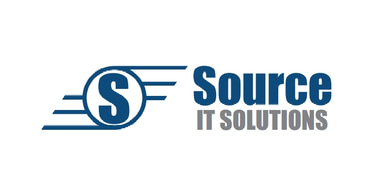5 Key Benefits Of Building A Centralized Data Lake
A data lake simplifies the process of collecting and storing your data. It provides access to structured, semi-structured, and unstructured information from various data sources, including applications, databases, mobile apps, IoT devices, social media feeds, and more.
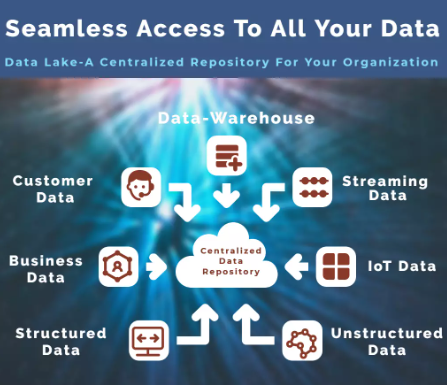

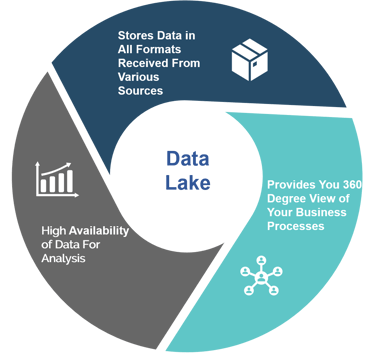

No More Data Silos
A data lake provides you seamless access to all your data for more meaningful insights
SourceITSolutions helps you break down data silos with centralized data management for seamless access and actionable insights.
In most organizations, data is scattered across various locations and stored in different formats, often without centralized access management. This fragmentation makes data retrieval and analysis a significant challenge.
With a data lake, these silos are eliminated. Data lakes consolidate, catalog, and centralize your data, ensuring seamless access to the information you need for faster innovation and meaningful insights. By creating a single source of truth, data lakes eliminate:
Data duplication.
Multiple conflicting security policies.
Collaboration difficulties.
With a centralized data lake, downstream users can easily find all data sources in one place, driving efficiency and reducing overhead.
Store Your Data In Any Format
Empower your organization with advanced analytics and predictive modeling capabilities through SourceITSolutions.
Data lakes allow you to store data in its raw format, eliminating the need for data modeling during ingestion. This flexibility enables you to store diverse formats and media, such as:
RDBMS and NoSQL databases.
File systems and time-series databases.
Logs, CSV, XML, and Parquet files.
This approach reduces costs compared to traditional data warehouses by storing data without predefined schemas or transformations. Additionally, since data is preserved in its raw state, you can refine previous analytics and generate new insights over time.
Data scientists gain direct access to this raw data, empowering them to leverage advanced tools for predictive modeling and data-driven strategies.
No Predefined Schemas
Maximize data value and security while minimizing liabilities with SourceITSolutions.
A data lake eliminates the need for predefined schemas, allowing organizations to store and process raw data without knowing the type of analysis required in the future. This approach provides:
Scalable, secure, and cost-effective storage.
Advanced analytics capabilities across structured, unstructured, and semi-structured data.
Cloud-based data intelligence to extract maximum value while maintaining data security.
By removing rigid schema requirements, data lakes unlock flexibility for processing diverse datasets and building robust analytics pipelines.
Build A Strong Foundation For ML & AI
Enable AI-driven insights and predictive analytics with centralized data lakes.
A centralized data lake supports modern machine learning and AI use cases by enabling the combination of multiple datasets for training and deploying advanced models. Since data is stored in an open format, it integrates easily with various ML/AI tools and services.
Key benefits include:
Low-latency processing for unstructured and semi-structured data, such as images, videos, audio, and documents.
Simplified analytics for AI-powered applications, enabling faster, more accurate insights.
Improved ability to identify patterns and usage trends critical for predictive analysis.
With a data lake, you can prepare your organization for the next generation of AI and machine learning advancements.
Modernize Your Data Infrastructure
Eliminate limitations of traditional data warehouses with SourceITSolutions' innovative data lake solutions.
Traditional data warehouses are expensive, proprietary, and lack the scalability required for modern data challenges. Data lakes address these limitations by offering:
Flat architecture and object storage for better scalability (up to exabyte scale).
Cost-effective, flexible solutions for big data analytics.
The ability to process unstructured data, a key priority for modern organizations.
At SourceITSolutions, we empower businesses to modernize their data infrastructure, enabling advanced analytics, machine learning, and AI. With a data lake, you can eliminate the constraints of traditional solutions and unlock your organization’s full potential.
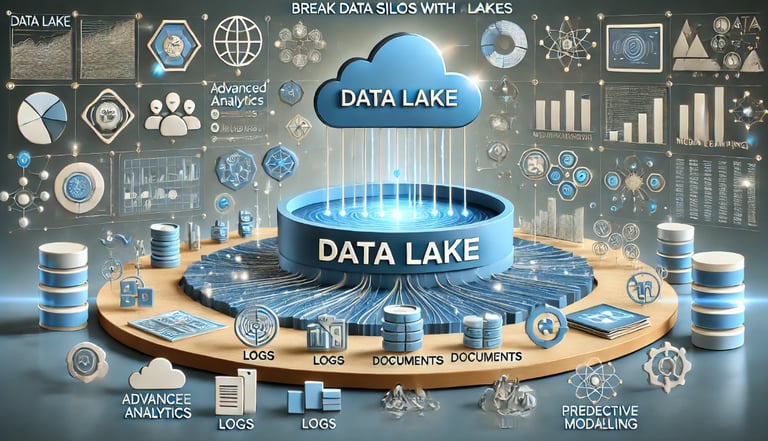

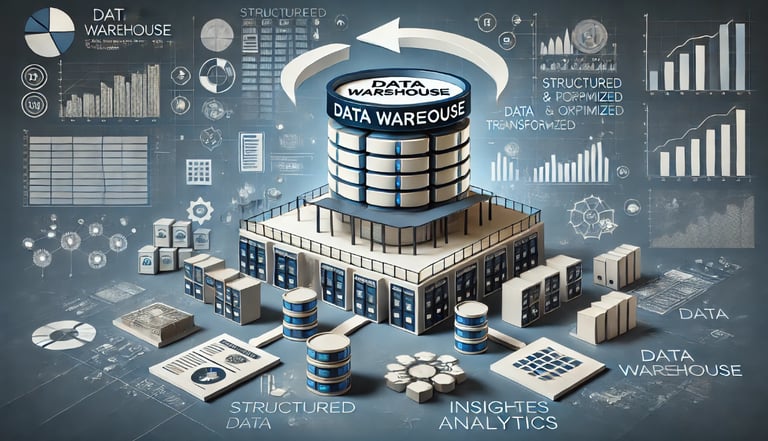

Data Lake Vs Data Warehouse
Organization requires both a data warehouse and a data lake as they serve different needs, and use cases.
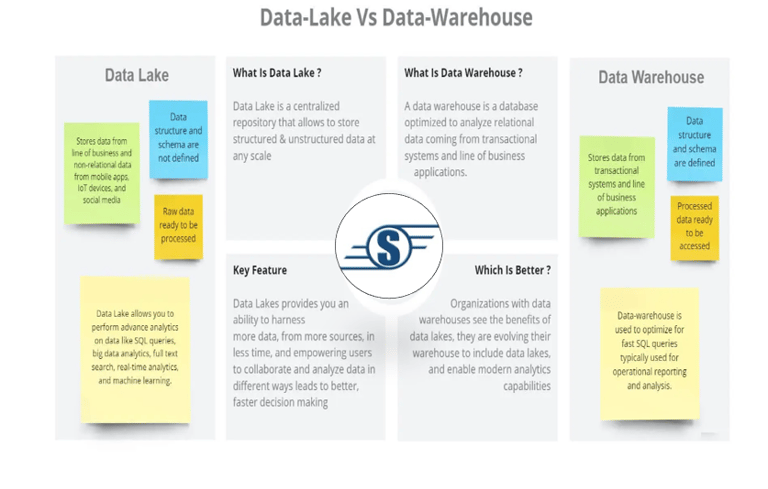

At SourceITSolutions, we understand the importance of leveraging the right data management solutions to drive business insights and innovation.
Traditionally, a data warehouse is an optimized database designed for analyzing relational data from business applications. Its data structure and schema are predefined, ensuring the system is optimized for faster queries and streamlined reporting. This structured approach makes data warehouses ideal for generating insights from well-organized, consistent datasets.
In contrast, a data lake is a vast repository of raw, unprocessed data whose purpose is not immediately defined. Unlike a data warehouse, a data lake can store both relational and non-relational data, including data streams from social media, mobile applications, IoT devices, and other sources. It is highly scalable and allows you to store data in any format without requiring a predefined schema or data model.
At SourceITSolutions, we empower businesses to harness the potential of data lakes by enabling advanced analytics such as:
Big data analytics for uncovering patterns in massive datasets.
Full-text search for querying large amounts of unstructured data.
Real-time analytics to process and analyze data as it arrives.
Machine learning for predictive modeling and other AI-driven applications.
By combining the structured efficiency of data warehouses with the scalability and flexibility of data lakes, SourceITSolutions helps organizations unlock the full potential of their data, driving smarter decisions and transformative growth.
